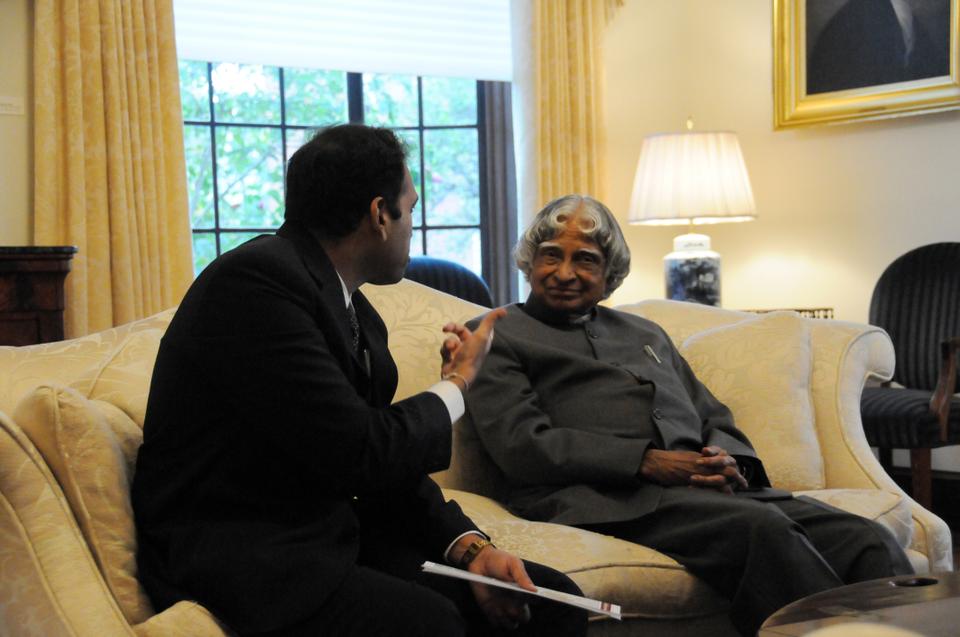
News
Summers Will Not Finish Semester of Teaching as Harvard Investigates Epstein Ties

News
Harvard College Students Report Favoring Divestment from Israel in HUA Survey

News
‘He Should Resign’: Harvard Undergrads Take Hard Line Against Summers Over Epstein Scandal

News
Harvard To Launch New Investigation Into Epstein’s Ties to Summers, Other University Affiliates

News
Harvard Students To Vote on Divestment From Israel in Inaugural HUA Election Survey
Former Indian President Urges Connectivity

Former President of India Dr. A. P. J. Abdul Kalam spoke last night about his plan for empowering people living in rural areas of the world.
Kalam’s presentation, called “Empowering 3 Billion,” was hosted by Harvard’s South Asia Initiative as part of an annual talk honoring Mahindra Ugine Steel Company founder Harish C. Mahindra ’46.
Kalam started by addressing the world’s most pressing issues, from unsafe drinking water to illiteracy.
“These are no longer problems of individual nations,” he said. “The world today is integrally connected through environment, people, economy, and ideas.”
Kalam, who served as India’s head of state between 2002 and 2007, was called the “People’s President” and the “Missile Man” because of his underprivileged background and promotion of domestic nuclear weapons technology.
In his speech, Kalam discussed his vision for the world in 2030 and how India is working to achieve it. Kalam spoke of a “beautiful world” in which the gap between rich and poor narrows, all citizens have education and health care, governments eliminate corruption, and nations are led by “creative leaders.”
Kalam pointed to India’s “Provision of Urban Amenities in Rural Areas” program as a key example of a government initiative that is successfully combatting economic inequities.
The program brings urban resources to poor rural areas so that these regions can become self-sufficient over time.
Kalam emphasized that “creative leadership” will be critical to reduce economic disparities in India. He said that economic development connects to creative leadership through person-to-person interactions, including customer loyalty and employee satisfaction.
Sai S. Balakrishnan, a graduate student in urban planning and an Indian citizen, said the idealism and the style of leadership Kalam cited were reflective of his presidency, though she added, “I wish there was more about how he injected idealism into his political life.”
Naushard M. Cader, a Harvard Kennedy School graduate, said Kalam is known as the first president of India to be more than a government figurehead, and called his presidency a “golden period” because of his dedication to engagement with the people.
Kalam said that in order to address social inequities in the long term, individuals must be “righteous in the heart” and lead by example.
Kalam told the audience they could start to individually work for peace by reciting a pledge, which drew laughter and applause: “From today onward, I will make my mother happy. If my mother is happy, the home is happy. If the home is happy, society is happy.”
Members of the audience appreciated Kalam’s tactic of offering personal solutions to global problems.
Gauri S. Subramani, a senior at Wellesley College, said she enjoyed Kalam’s “micro-approach” and his encouragement of interpersonal relationships to achieve peace and development.
“At the end of the day, it’s all about people,” Cader said.
Want to keep up with breaking news? Subscribe to our email newsletter.
